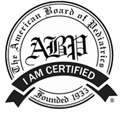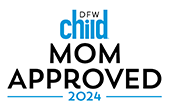Nearly one in five people will take an herbal supplement and this number is even higher in children who have chronic illness. There continues to be this assumption that if it is ‘natural’ – it’s safe. That’s not necessarily true.
Dietary supplements like vitamins and herbal remedies are regulated by the Dietary Supplement Heath and Education Act (DSHEA) – not the FDA as most people think. These products can be sold with no testing and only a ‘reasonable assurance’ of safety…not proof. There are no standards for supplements and its up to the company to make sure the product is consistent with what it declares to be the ingredients and that it’s not contaminated. The government does not regulate these companies.
One indication of quality is the USP seal- United States Pharmacopeia Dietary Supplement Verification Program. This is a verification process where a company voluntarily submits its supplement for analysis and receives a logo to place on their product if the quality is ‘approved’
How risky is taking a supplement?
In 2011, 75% of 68 products had no safety messages for products that could have toxicities or interactions with other products or drugs. The following list of supplements should be reviewed prior to surgery since they can cause problems with platelets (clotting), electrolyte problems, instability of the heart and blood pressure: Echinacea, ephedra, garlic, ginkgo, ginseng, kava, St. John’s wort and valerian.
Products that should not be used on children: Aconite, belladonna, blue cohash, borage, broom, calamus, chaparral, coltsfoot, comfrey, germander, life root, lobelia, pennyroyal, poke root, sassafras, skullcap, tansy, ragwort and wormwood.
It’s a good idea to make sure your doctor knows if you are taking any supplements.
Information derived from Pediatric News March 2018.
Susan Badaracco, pediatrician and author of “The Oath” series.



